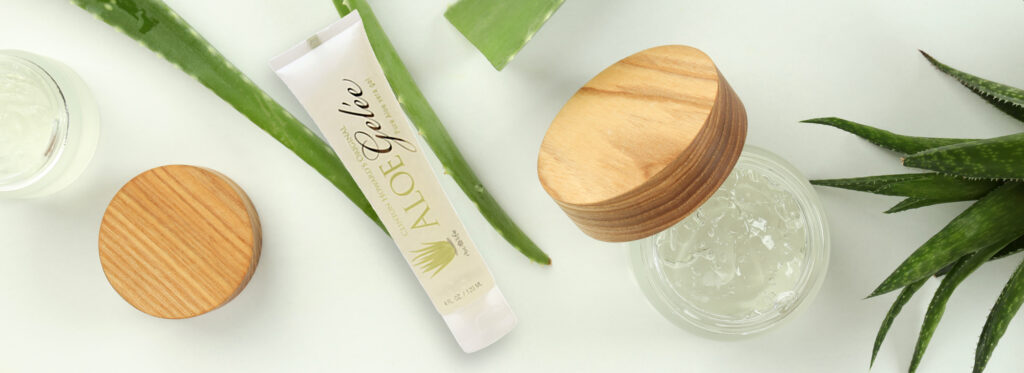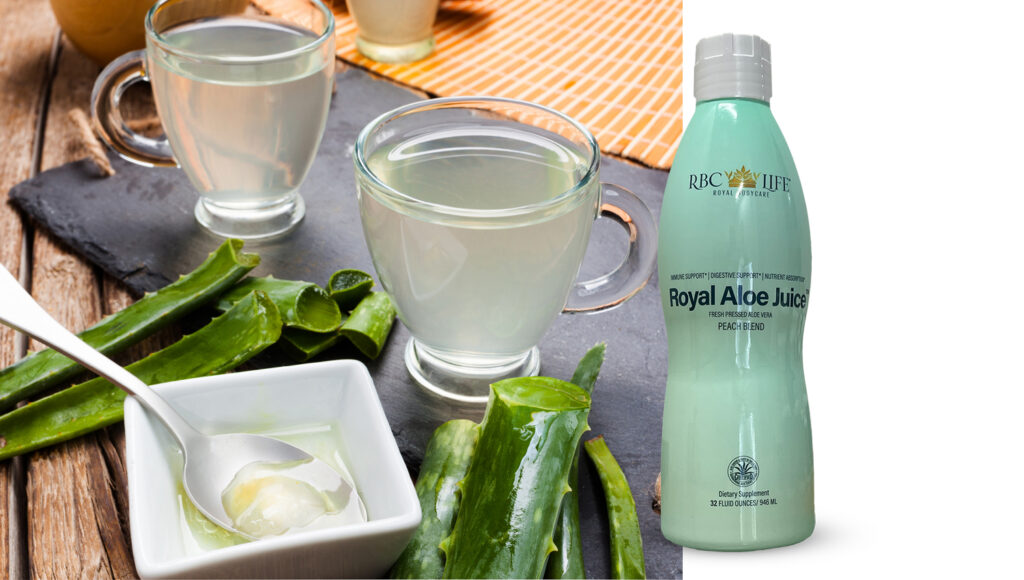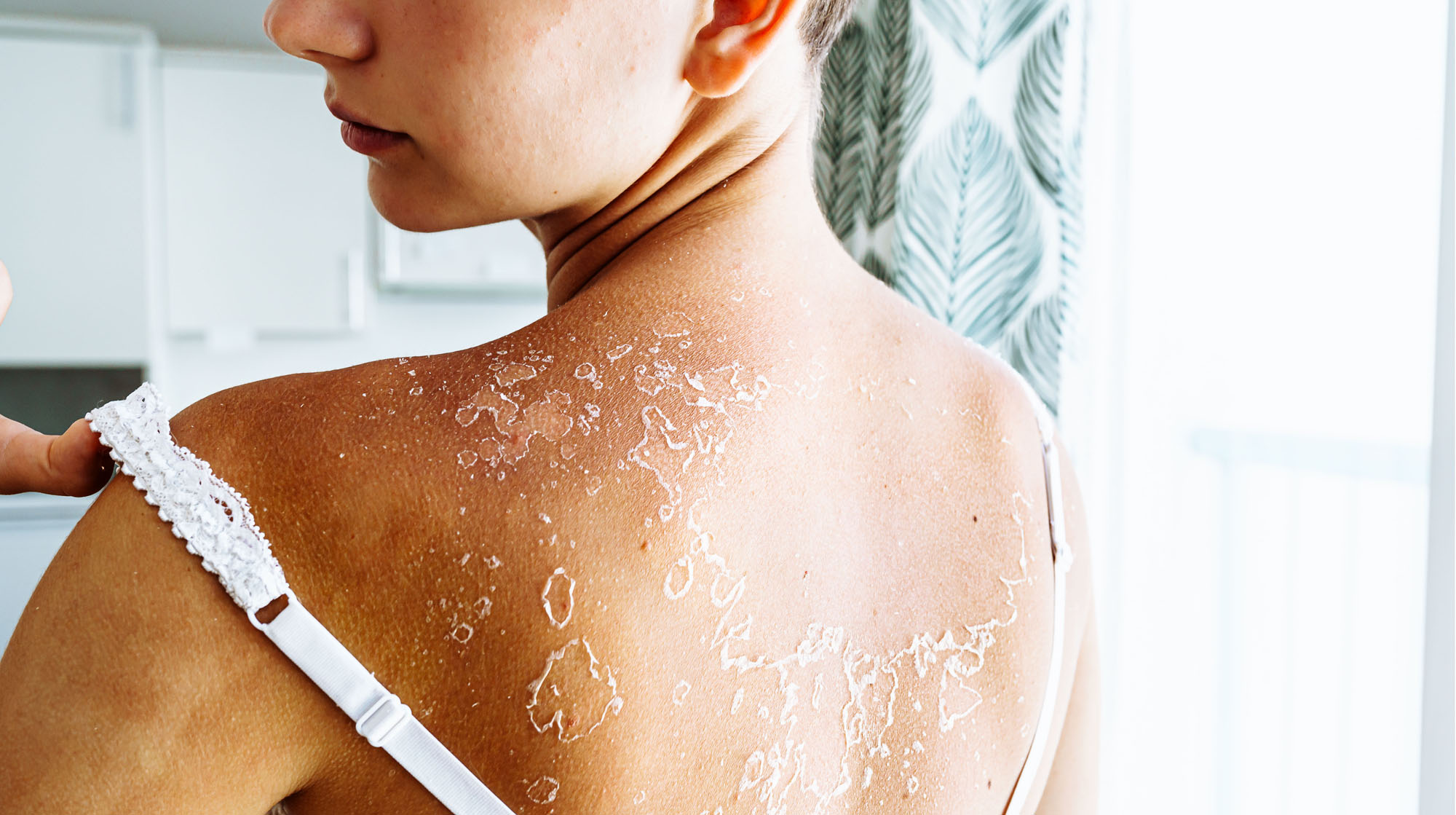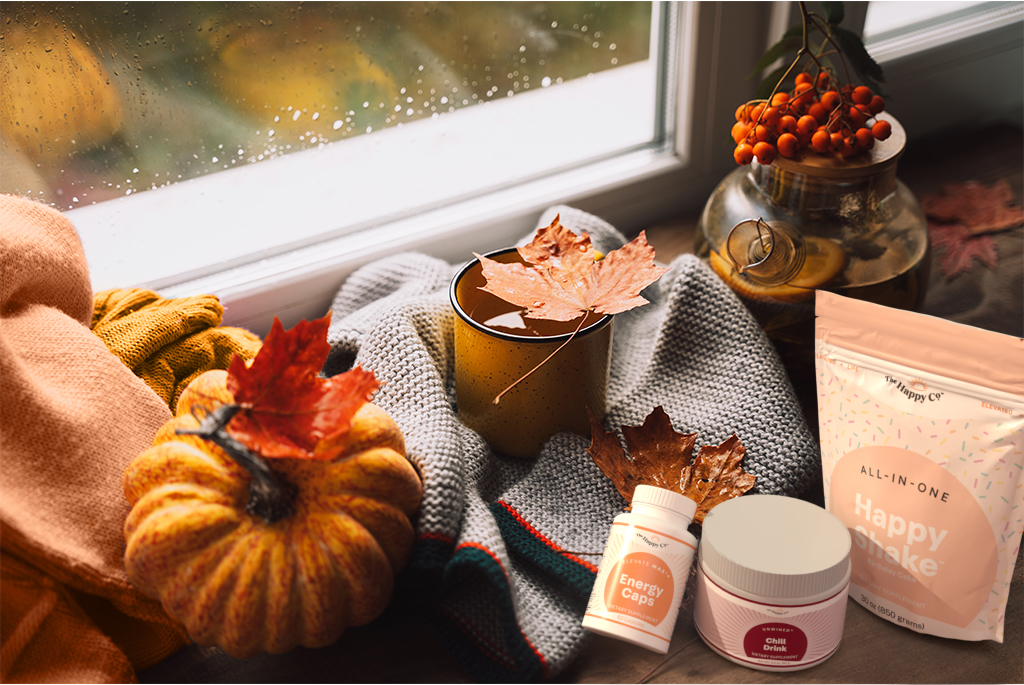If you said “sunburn relief,” then you’d be right. That cooling, gooey gel has soothed many scorched shoulders and is a time-trusted remedy. But there’s a lot more to aloe than sunburn care.
The plant has a long history of dermatological benefits when applied topically, from supporting skin hydration, speeding wound healing, calming rashes, and of course, to treat burns far more serious than sunburn.
It’s been used for hundreds of years, originating in the Arabian peninsula. There are more than 600 varieties of aloe vera plants and contrary to popular belief, they aren’t a form of cactus, but their own class of succulent. They’re remarkably hardy—a plant can live to reach 100 years and they thrive in dry desert climates, even though they’re more than 95% water. And that remaining 5%, the meat of the plant leaf, is where the nutrients and true power lie.

Somewhere along the line, curious curators decided to move from topical use to drinking the juice from the aloe plant. It has a mild, refreshing flavor that isn’t sweet or bitter—almost like cucumber water, but with a few key differences. First, the texture is unique. Aloe vera juice is thicker than water, and quality pressed juice with the most potent nutrients will also be dense with floating pulp…the best healthy bits from the aloe plant leaf itself. Always ensure you select an aloe vera that is pure pressed aloe and doesn’t contain fillers that can impact potency or shelf life.
The other key difference between popular juices and aloe vera juice is its potency and bio-availability of nutrients. Even a 1-2 ounce serving of aloe vera juice is packed with vitamins B, C, E, and folic acid, while being low in calories and without sugars. A little goes a long way!

The juice is rich in phytonutrients that may support healthy liver function and is high in antioxidants, which are known to fight symptoms of aging and some chronic diseases. It’s considered an adaptogen, which means aloe can support your body’s adrenal system and how it responds to stress, anxiety, and fatigue. As an additional benefit, aloe has mild anti-bacterial properties. The same properties that support topical healing can also support oral and dental hygiene when consuming aloe vera juice.
The study of aloe vera is as old as plant medicine itself–yet as new and exciting as today’s health trends! As we look for easy, on-the-go ways to live a healthier and more natural lifestyle, incorporating aloe vera juice into our regimens can be a delicious dish–and we can skip the sunburn altogether!
Learn more about aloe vera and Royal Aloe Juice by RBC Life HERE.



